LOST MY MARBLES AND FOUND DESTINY - REVISITING FOUR NIGHTS IN FEBRUARY 2003 (PART 1)
[Phish.net thanks @andrewrose for this four part reflection on one of Phish's strongest individual tours: Winter 2003. -Ed.]
PART 1: How Is It I Never Saw
02/24/2003 - Continental Area, East Rutherford, NJ
Well another twenty years have passed, but when you track all the days they’re kind of always passing, aren’t they? Anyway the last time I did one of these (when publishing this retro look at Summer 99 and the Meatstick craze), I laid out what seemed like a necessary disclaimer about the pleasures and perils of nostalgia. It’s still relevant, but this time I’d rather skip that, point you to the footnote, and get down to business—because I have some things to tell you and me about February 2003.
So let’s rewind again, this time back a bit further to the sun coming up at Big Cypress. I didn’t know it then but there would be no “PHISH 2000!” for me. That magical clock turning we did in the Everglades was my last show before the hiatus in 2000, and I had gone off that next summer to do the obligatory European backpack tour with my girlfriend. I turned 20 in August 2000.
DISCUSSING PHISH PHAN SUBCULTURE WITH CHRISTINA ALLABACK
[The following post is an interview with Christina “Chryss” Allaback (phish.net: Tela2019) about her article, “Phish Fan Subculture: The Possibilities of Phans' Performance.” The interview is part of an AMA series celebrating the publication of the “Phish and Philosophy” special issue of the Public Philosophy Journal, edited by Stephanie Jenkins and Charlie Dirksen. Kristine will also be answering your questions in the comments throughout the week. The next post will feature Denise Goldman, so submit your questions now.]
Tell us about yourself. Who are you? When was your first show? Why do you come back?
My name is Christina “Chryss” Allaback, and I’m an Assistant Professor of Theatre at University of Pittsburgh at Greensburg and a theatrical director. My first show was 8-1-98 at Alpine Valley. This year is the 25th Anniversary of my first show and I hope to be celebrating on the floor at MSG. I come back to Phish because they are top rate musicians and artists. They take ambitious artistic risks that really pay off. Having done improvisational theatre and comedy in the past, I appreciate the fact that they are making beautiful art at the moment, and then that moment is gone. Of course, we can listen to tapes after the show, but the ephemeral nature of the live improvisational performance is a treasure to experience.
Why did you decide to write this essay? What do you want your readers to take away from it?
This essay is actually part of the larger dissertation that I wrote for my doctoral degree. I started writing about Phish fans as an academic project because there was something being performed at shows that was really special, and it was not just what was happening on stage. There was a feeling, an emotion, that I felt at Phish shows that I couldn’t quite put my finger on. And I started reading all this performance theory and it started making sense.
It is my hope that when people read my articles, they get a deeper understanding of why we, as humans, perform in everyday life and on stage. There is a liberation in performance, a freedom, a connection. As a young artist, I wanted to change the world with my art. As I grew up, I realized what a naïve goal that was. But we can change people with our art and that is as good as changing the world. I was told by people in my life, as a non-actor, that I was probably good at lying because I was an actor. But art is not about lying, it is about expressing a truth within a world. I feel Phish does this onstage, and we do this in the audience.
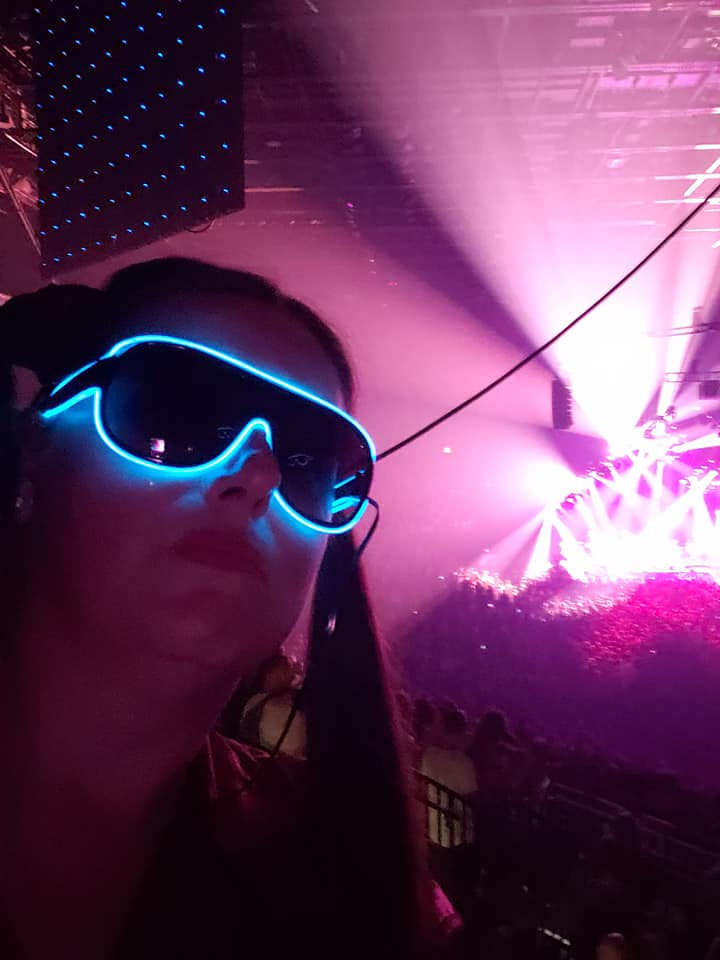
VOTE FOR 2022'S JAM OF THE YEAR
It’s a new year and Riviera Maya is around the corner, so it's time once again for the Phish.net “Jam of the Year” tournament. As they have done yearly since 2014, Phish.net forum users have come together to seed a 64 jam bracket highlighting the best of improv of 2022.

Every Monday, we will create a thread to post new head-to-head matchups based on regions within the bracket, beginning in the Willy region. Voting for the first round is open to all and currently underway on the forum (look for the ***asterisks***). There you will also find that we have created LivePhish+ and Phish.in playlists for your listening pleasure and convenience. Please join us for voting, discussion, and debate on the forum each week as we narrow the field and ultimately determine the “2022 JOTY”.
THE SCHOLARSHIP OF PHISH AND PHILOSOPHY
The following post is an interview with Stephanie Jenkins (phishnet: askesis) about her introduction to and perspective on the “Phish and Philosophy” special issue of the Public Philosophy Journal that she co-edited with Charlie Dirksen. The interview is part of an AMA series celebrating its publication. Stephanie will also be answering your questions in the comments throughout the week. The next post will feature Christina Allaback, so submit your questions now.
Tell us about yourself. Who are you? When was your first show? Why do you come back?
I’m Stephanie Jenkins and I’m an associate professor in the School of History, Philosophy, and Religion at Oregon State University. I am one of the co-editors of the special issue of the Public Philosophy Journal devoted to Phish, along with Charlie Dirksen. My first show was 2/24/2003 at Continental Airlines Arena. That show debuted three B.B. King songs at the end of the first set, with him making a guest appearance on guitar. I come back because I was saved by rock and roll. Phish is healing for me; it’s also my temple, where I go to pray. Dancing at a Phish show reconvenes, reconnects, and recharges my mind, body, and spirit.
.jpg)
PHISH AND PHILOSOPHY: THE KISCERAL CONNECTION
The following post is an interview with Kristine Warrenburg Rome about her article, “The Kisceral Connection.” The interview is part of an AMA series celebrating the publication of the “Phish and Philosophy” special issue of the Public Philosophy Journal, edited by Stephanie Jenkins and Charlie Dirksen. Kristine will also be answering your questions in the comments throughout the week. The next post will feature Stephanie Jenkins, so submit your questions now.
Tell us about yourself. Who are you? When was your first show? Why do you come back?
I am Kristine Warrenburg Rome, a mother to two wonderful kids (6 and 9) and an Associate Professor of Communication at Flagler College (14 years) in St. Augustine, Florida, where I teach classes concerned with listening first, media ethics, stereotypes in the media, popular culture criticism and more. While pursuing my Ph.D. in Rhetoric & Communication Ethics (2009) from the University of Denver, I met my husband in the front row of a Phix show, a Mockingbird Foundation benefit post-Trey Band show in Fall of 2005. My brother is a Phishhead, his wife is a Phishhead, my friends from every stage of life from grade school to grad school have been show partners for going on 27 years since my first show (Deer Creek 8/12/1996). At this point, shows are class and family reunions and I am grateful for that.
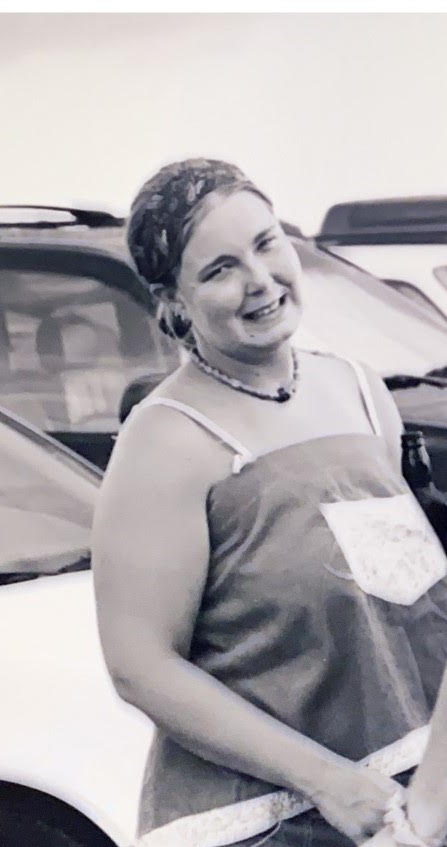
RETRO-RECAP: AUGUST 13, 1996, DEER CREEK ...AAAAAND WE'RE BACK!
Time machines and memories can sometimes go hand in hand. Once something is stored in your memory bank, when it occurred can often feel irrelevant. Did this happen last month? Last year? Last decade? You see it in your mind almost like it was yesterday. Because to your memory bank, it very well could be. Once it’s stored, your mind can play tricks on you like that. Therefore, in a way, your memory bank *is* a time machine that you can access anytime.
That’s why we as humans want to create experiences that translate to memories. Sitting back and taking in the wondrous glow of memories with smiles on our faces is part what this is all about; part of what *life* is all about! We can then recap those memories like pages in a photo album or clips of a film. The memories themselves can act like our very own show of life.
But anyway, let’s get back to the task at a hand. A time machine recap of a past Phish show. This one happens to be 8-13-96 Deer Creek. Now, I’m not a believer in perfection, but to my ears, this show is about as close to perfect as it gets. And because it was officially released, we can all have an even clearer insight into what occurred this night while creating our own new memories as we listen.
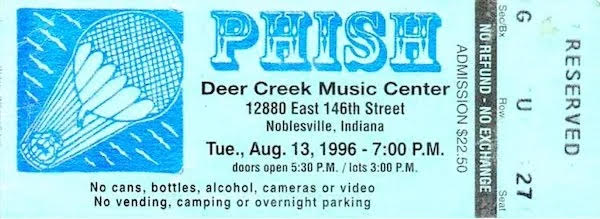
RETRO-RECAP: JULY 7, 1999, AN ATMOSPHERIC RIVER OF SOUND
[On December 31, 2022, on stage at Madison Square Garden, a certain rodent broke the Phish time machine, causing many participants in New Years' gags and other events from the past 40 years of the band’s history to temporarily make their way to the present. When the Time Machine broke, it also inadvertently sent a number of fans back in time, Quantum Leap style, to experience Phish shows from their younger days. Those fans include Jonah user @LizardwithaZ, whose recap of July 7, 1999, at the Blockbuster Pavilion in Charlotte, NC, appears below. If you are also one of the fans transported back in time and would like to recap your time-traveling show, please send an email to charlie at phish dot net.]
The feeling that prickles through my skin as the clock approaches midnight on December 31, 2022 causes me to sit straight up on the couch, goosebumps rippling across my skin. One moment I am here, awaiting the incoming New Year, the next, I have somehow been thrust back into 17-year-old me, riding in the back seat of a sedan.
That’s right: the Phish Time Machine has sent me back to July 7, 1999 to recap the 2nd show I ever attended.
Charlotte, North Carolina.
Blockbuster Pavillion.
(What’s a Blockbuster, you ask? Sorry, I’ll just be sitting in the corner crying about how old I’ve gotten.)
.jpg)
MSG4 NYE RECAP: ALL THE GAGS
[We would like to thank Eric, user @Doktahgonzo, for recapping NYE. -Ed.]
New Year’s Eve has been a time that has become synonymous with renewal, the process of moving forward, and the promise associated with setting a new marker to measure our lives by. It underlies what many of us recognized to be at the heart of the cultural understanding we have developed around New Year’s Eve. It is a time for reflection on both the good moments we have had, as well as the adversities faced, and an attempt to look forward to something better on the near horizon. In the community around Phish I have long felt that we may be more acutely aware of this phenomena. The sense of spectacle, humor, and tradition that the band has infused the date with makes for an optimistic yearning that has felt palpable to me for the entire run of these shows.
.jpg)
MSG3 RECAP: THE GOLDEN AGE
[Great thanks to Megan Glionna (user @MeganGlionna, @themegandance1 on Twitter and @the_megan_dance on IG) for recapping last night's show! -Ed.]
December 30, 1997. 25 years ago. I was nineteen and up to no good. I sauntered into MSG for what would be the best Phish show I have ever seen.
I had seen a few incredible shows that summer, but college and a lack of funds kept me from seeing any Fall ‘97 shows. I had also been listening to a lot of house music and was getting into the rave scene, so my attention was slowly turning away from my favorite band. I was expecting that Phish would put on a great set of shows for their first multi-night New Year’s Eve run in New York City, but my interest in other music made me less concerned with what or how they would play. But, the opening 921-show bust out of “Sneakin’ Sally,” the Pentagram “Harpua,” the curfew breaking, the encore with the final “Black Eyed Katy”… it was the perfect capstone to an epic year of dance party, cowfunk Phish.
.jpg)
MSG2 RECAP: JUST HOLD TIGHT
2022 has been an interesting year of Phish. There have been moments of brilliance, but the music has rarely reached the improvisational peaks of Fall 2021. We discuss this at length on HF Pod. Of course, we don't really know how or why Phish’s playing is different tour to tour. But for me, one major factor is the band’s willingness to take risks, and I think last night’s show was a prime example of taking risks—and seeing it pay off.
A 22-minute opening “Fluffhead” set us off in a great direction. In the 7 minutes post-jam, it starts slowly and melodically, with Page on piano. The tempo wasn’t fast, but that allowed for more interplay between Page and Trey. That could have been the end, as it started to get quieter—but they kept on it and ended up in a really nice jam that, with a little bit of teasing before, ends in “Your Pet Cat.” But we don't really get the typical Your Pet Cat jam, we get a huge, booming climax, making people at MSG, and at home, wonder "what the hell is going on"? And that's exactly where we want to be.
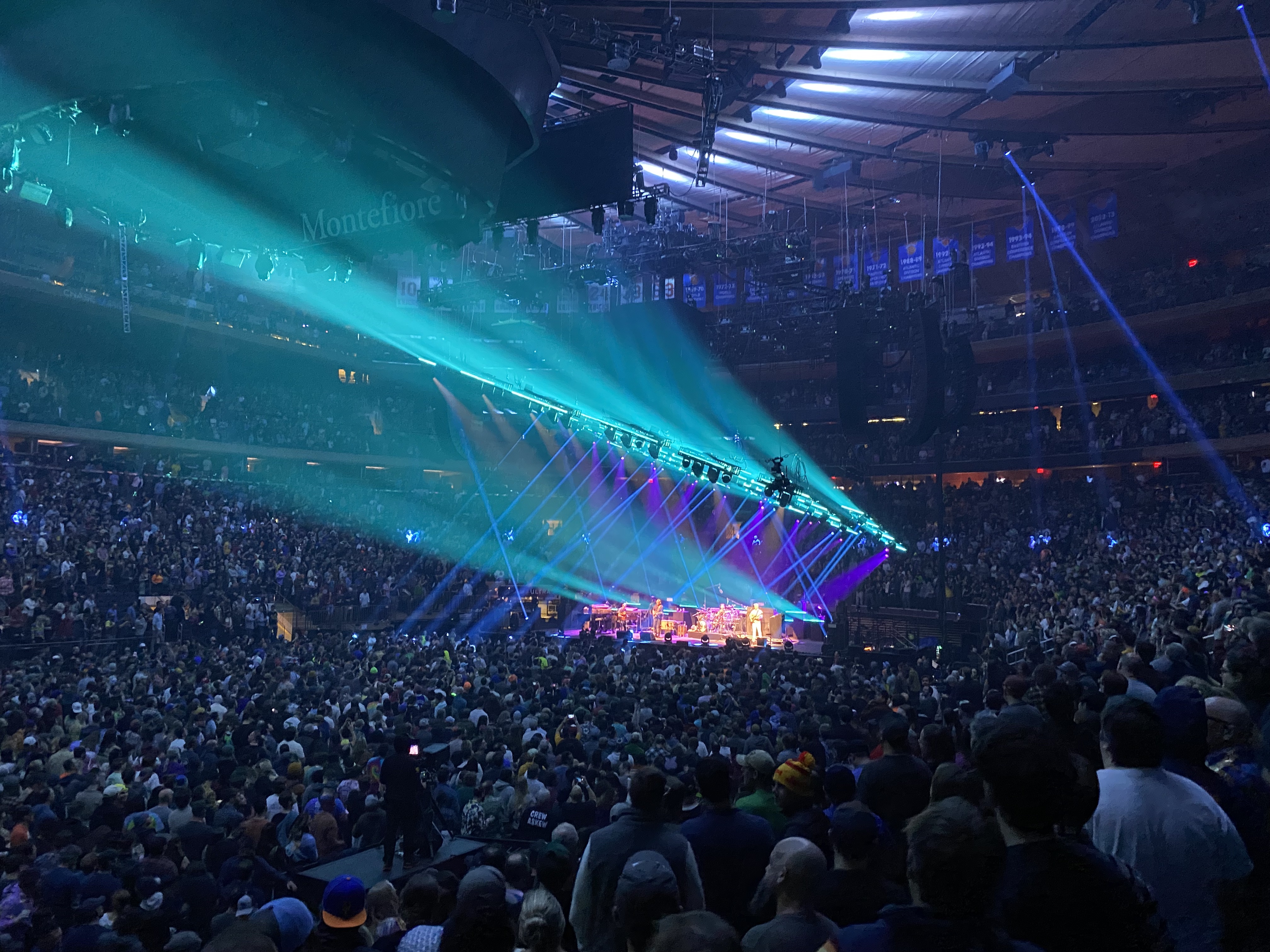
MSG1 RECAP: AND WE'RE BACK!
[We would like to thank Ryan Storm for recapping last night's show. -Ed.]
Last night was a much-needed reminder of why we Phish.
After an almost four-month break since Dick’s, the band returned to the Mecca, The Venue, the best place to see them – Madison Square Garden. Their second run at the World’s Most Famous Arena in 2022 (following up the whale of a good time in April) and the first proper New Year’s run since 2019 had excitement high.
With rumours flying wildly about the possibility of a “Baker’s Dozen II” next summer and tickets seemingly falling from the sky, expectations were high yet tampered. This year in Phish has been somewhat akin to 2016 or 2019 – lots of inconsistency with big jams scattered across the shows in a year that needs to follow up a landmark or peak (2015, 2018, 2021).
Regardless of any outside expectation or vibe, I was bursting at the seams with excitement upon walking into MSG last night. Having scored a four-day pass in lower section 208, I was set with a great view of the stage and was surrounded by a good number of people who were also settling into the spot for all four nights. I also took quick note of the stage setup – Page’s rig is NOT on a moving riser this year, which means the NYE gag will not involve a full-stage clear like the previous couple have.
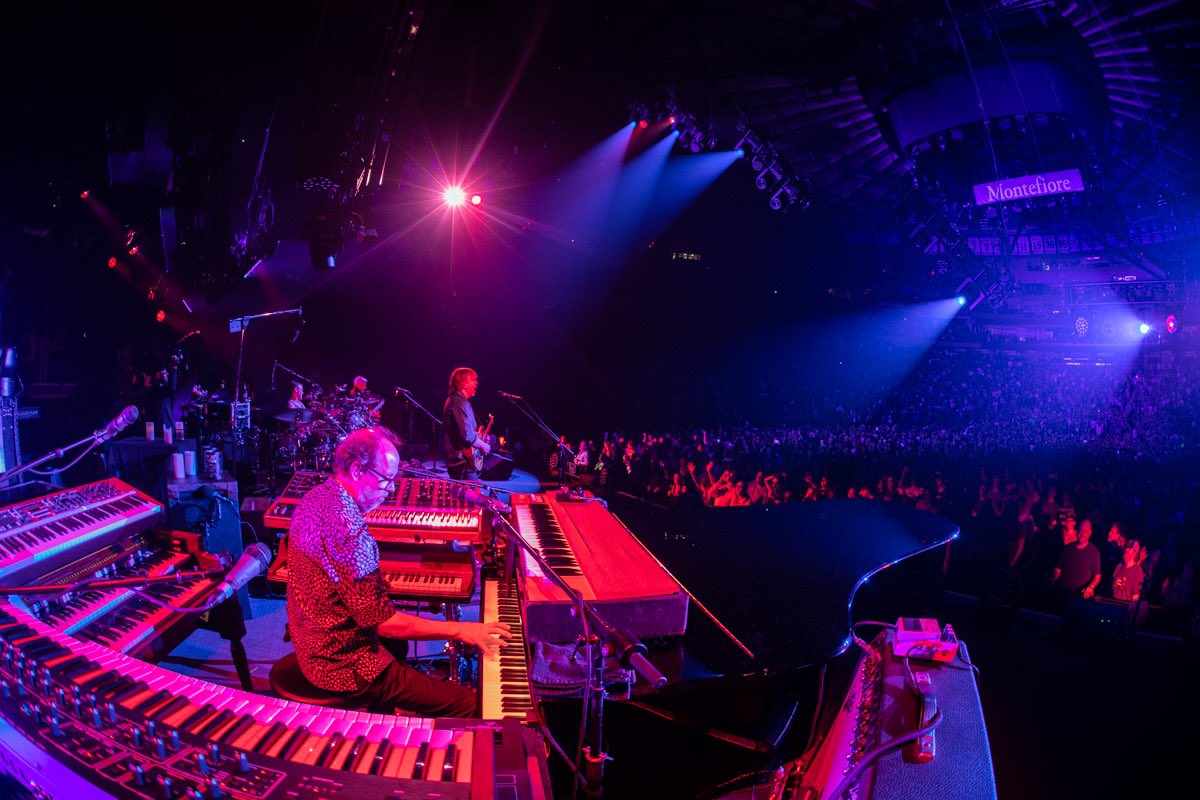
SURRENDER TO THE FLOW #76: NYE RUN 2022-2023
The new Surrender To The Flow (STTF #76: NYE Run 2022-2023) is out, please download it here at this handy link, and please consider donating to support it!
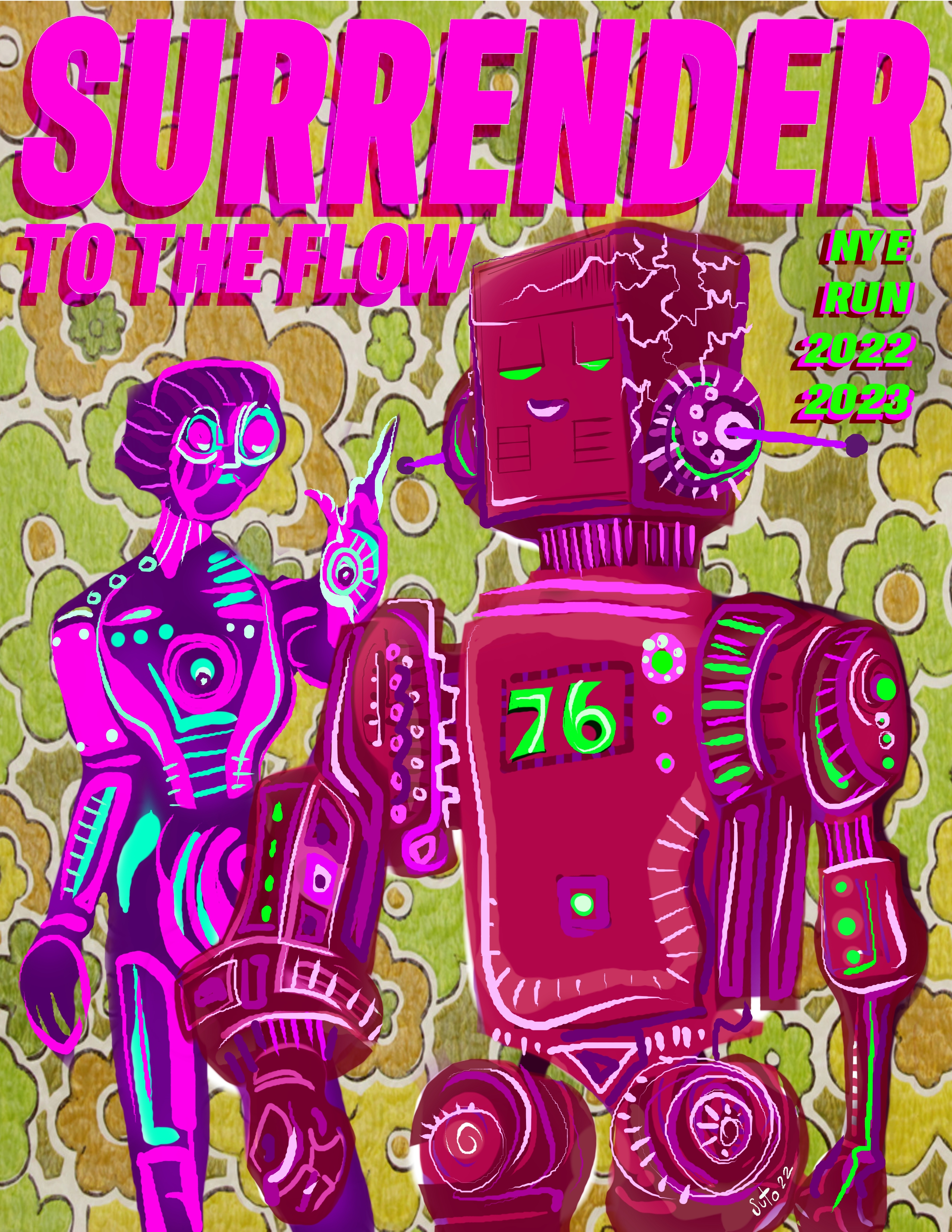
THE VIBE: PULSATING WITH LOVE AND LIGHT BY JASON DEL GANDIO
The following is an interview of Jason Del Gandio (phish.net user @JasonDG) about his article, “Pulsating with Love and Light.” The interview is part of an AMA series celebrating the publication of the “Phish and Philosophy” special issue of the Public Philosophy Journal, edited by Stephanie Jenkins and Charlie Dirksen. Jason will also be answering your questions in the comments throughout the week. The next post will feature Kristine Warrenburg Rome, so please submit your questions now.
Tell us about yourself. Who are you? When was your first show? Why do you come back?
Hi, everyone! I am a college professor at Temple University in Philadelphia focusing on the theory and practice of social justice. My first show was back in 1993 (7/25, Waterloo Village). Not to sound cliché, but the collective vibe is what keeps me coming back. Besides live music, I also love traveling, stimulating conversation, the bustle of cities and the tranquility of nature, and I am passionate about changing the world for the better.
Why did you decide to write this essay? What do you want your readers to take away from it?
I saw this as an opportunity to connect my ideas about the vibe with the Phish experience, and hopefully share those ideas with a receptive audience. I am hoping that the essay gives people a language for articulating and understanding something we all talk about, but rarely define or explain.
You said the essay reflects your personal Phish experience. What’s your favorite encounter with the vibe?
I grew up in a household where the vibe was a common word. Then in my late teens I started going to concerts, clubs, raves, underground parties, etc. It’s there that the vibe stood out as real, tangible, experiential. One notable Phish vibe is 4/15/94, Beacon Theater. Without exaggeration, it was otherworldly. My 20-year-old mind asked: What is it, how might we explain it, and can it help change the world?
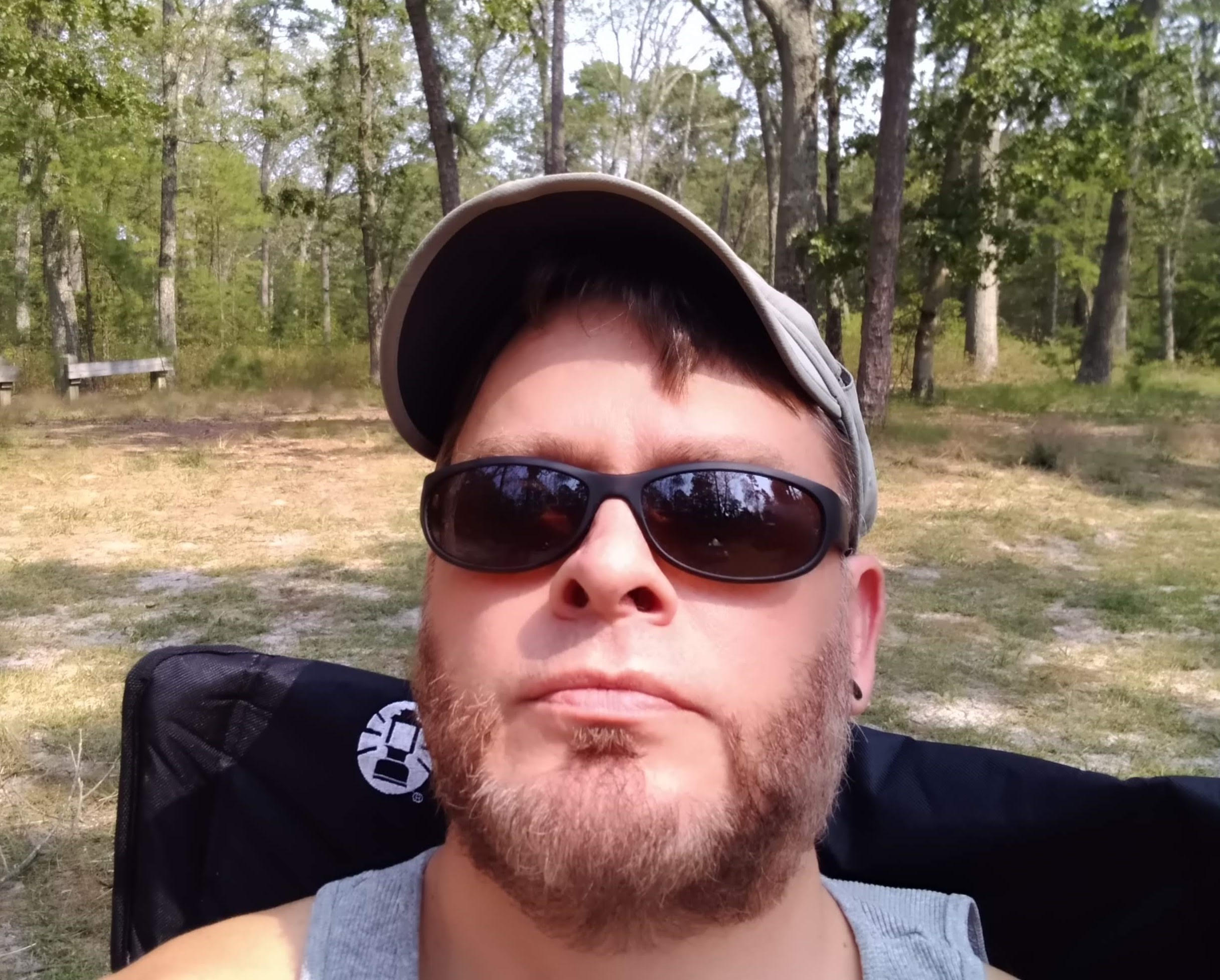
HOW IS PHISH THERAPEUTIC? WITH ISAAC SLONE
[The following post is an interview with Isaac Slone (phish.net user @isaacslone) about his article, “How is Phish Therapeutic?.” The interview is part of an AMA series celebrating the publication of the “Phish and Philosophy” special issue of the Public Philosophy Journal, edited by Stephanie Jenkins and Charlie Dirksen. Isaac will also be answering your questions in the comments throughout the week. The next post will feature Jason Del Gandio, so please submit your questions now. -Stephanie]
Tell us about yourself. Who are you? When was your first show? Why do you come back?
Thanks for asking! I am a practicing psychotherapist in New York City - working on my license to practice psychoanalysis. My life intertwines with Phish in so many ways, it’s somewhat unbelievable. My first show was 6/2/09 - the summer before I started high school. It was so exciting that the band was reuniting - I remember it felt like something to live for. I come back because of the music. I think the band is phenomenal, and their live show is unparalleled.
Why did you decide to write this essay? What do you want your readers to take away from it?
I decided to write this essay because of how often I hear Phish fans talk about the joy they experience at shows. People within the Phish community commonly accepted the notion that Phish has a therapeutic value, but there was more for me to articulate about how exactly that works. There is a long tradition of psychology/psychotherapy extending out in conversation with other disciplines, and I wanted to begin building that bridge with Phish. I hope that it opens a deeper discussion or reflection for the reader because my experience is only one of many, and there’s only so much I can say about it in the short space of the essay. There are numerous ways to describe how what Phish does is therapeutic - I hope my piece sheds light on that and pushes the conversation further.
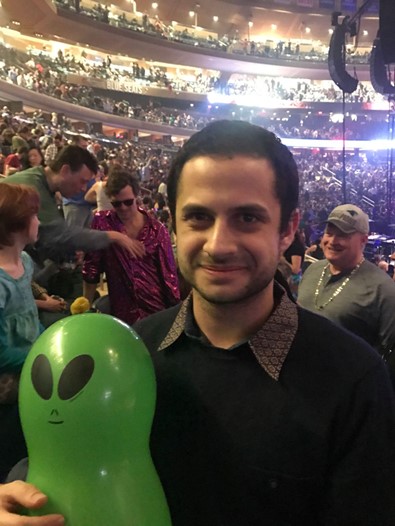
PUBLIC PHILOSOPHY JOURNAL SPECIAL ISSUE ON "PHISH AND PHILOSOPHY"
Dr. Stephanie Jenkins, Ph.D. (Phish.net user @askesis) writes:
We’re excited to announce an upcoming series that The Mockingbird Foundation offers in collaboration with an academic journal.
This summer, the Public Philosophy Journal published a special issue on “Phish and Philosophy”—the first academic journal ever to be dedicated to the band—and Mockingbird’s participation in scholarly research was a first-of-its-kind partnership! Find buckets full of thoughts and read the articles via the PPJ’s online publishing platform at this link, and please click the "Read More" link below for more information. 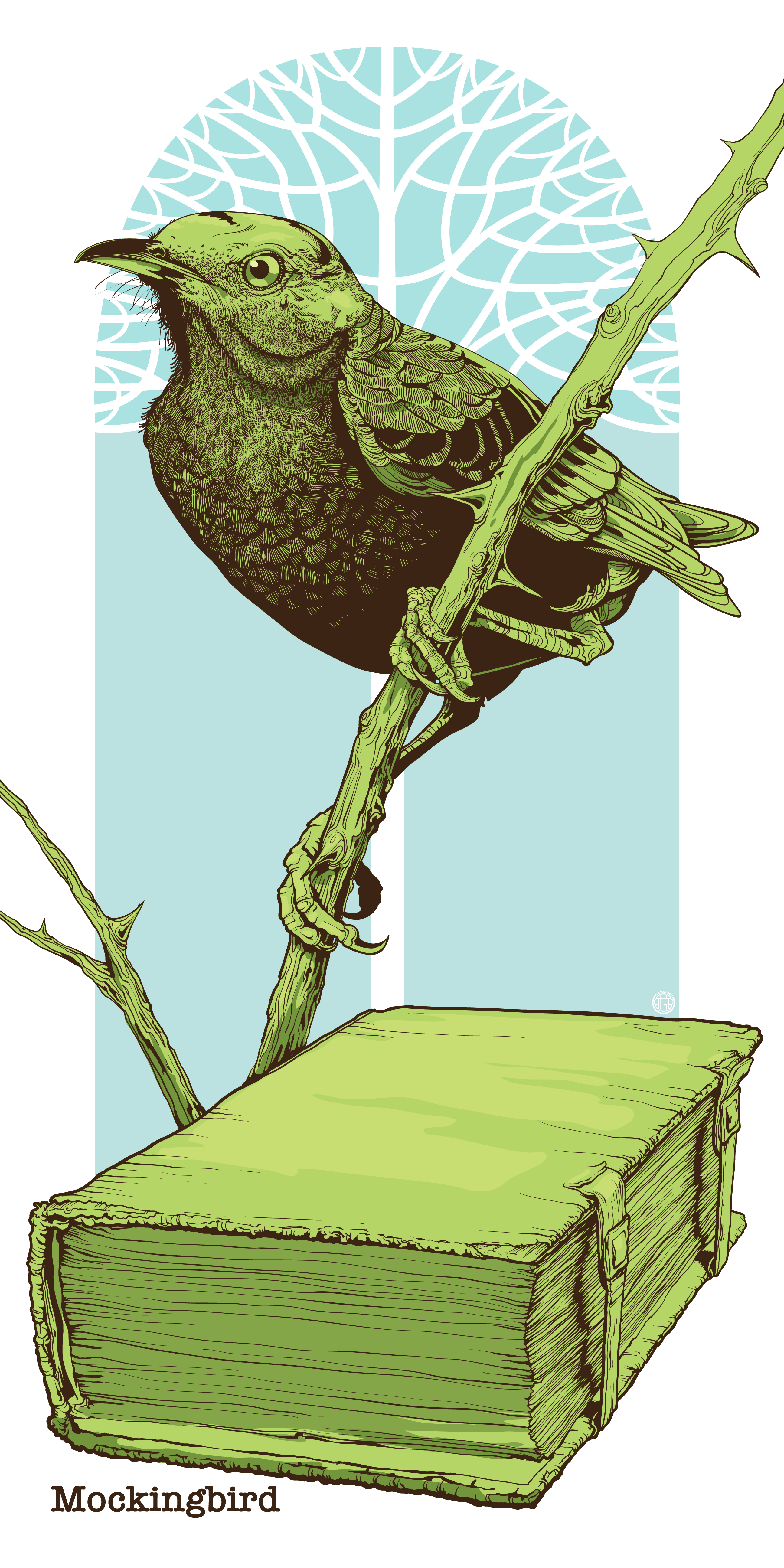

 The Mockingbird Foundation
The Mockingbird Foundation